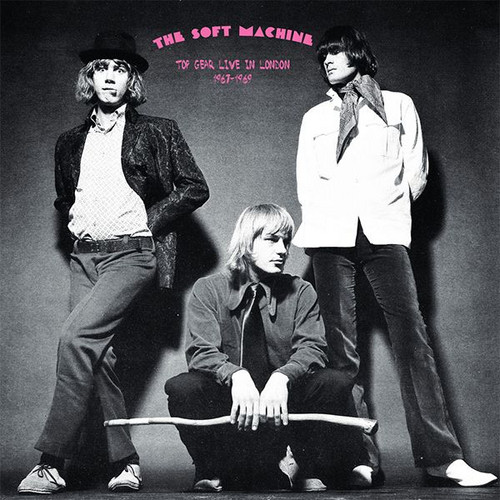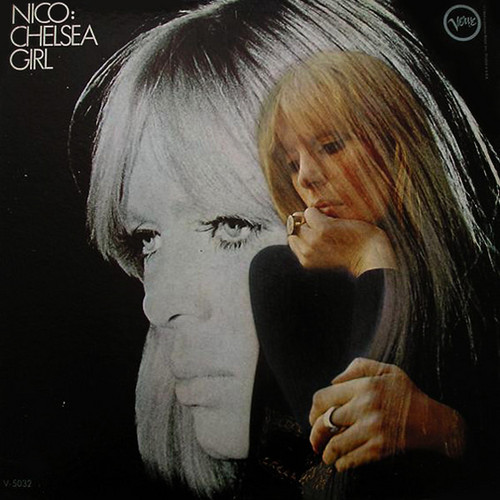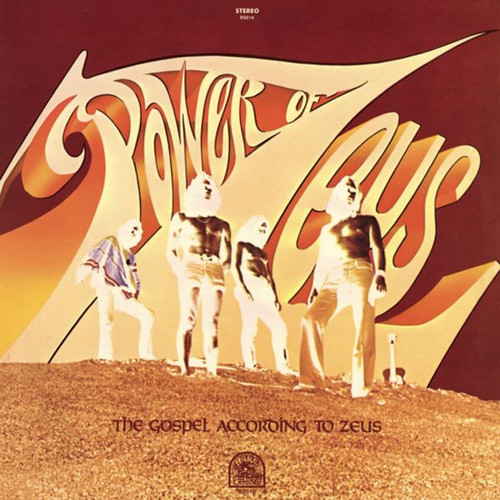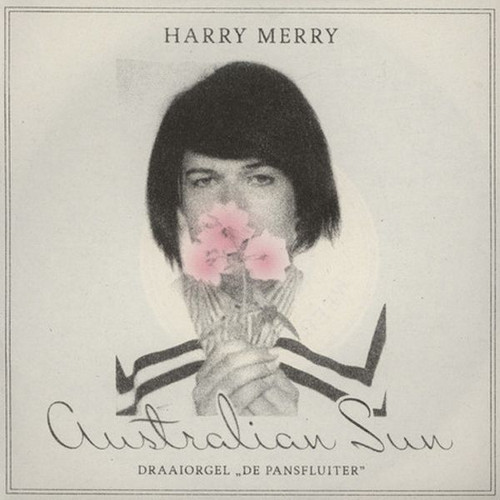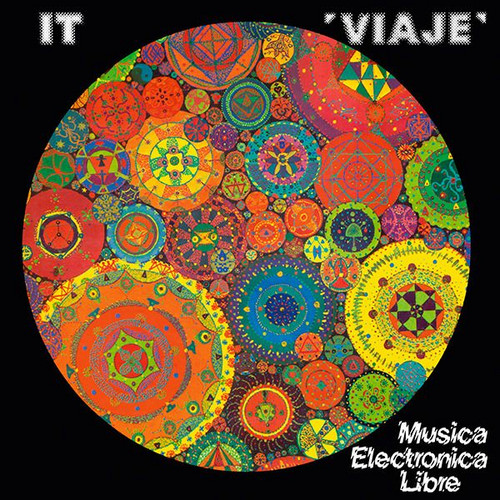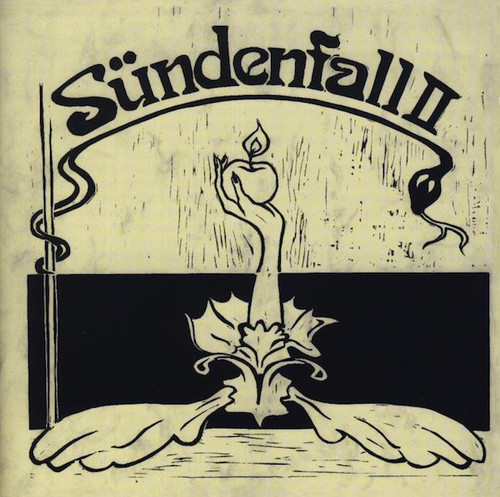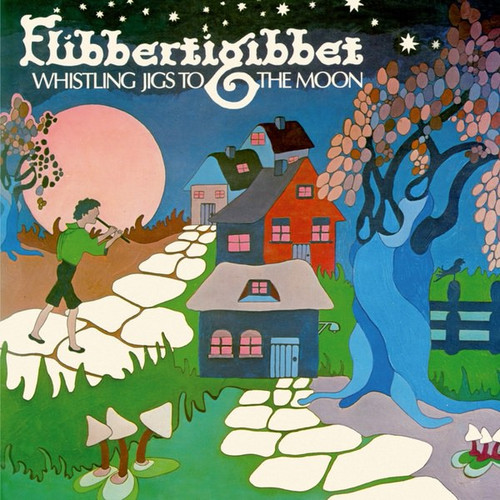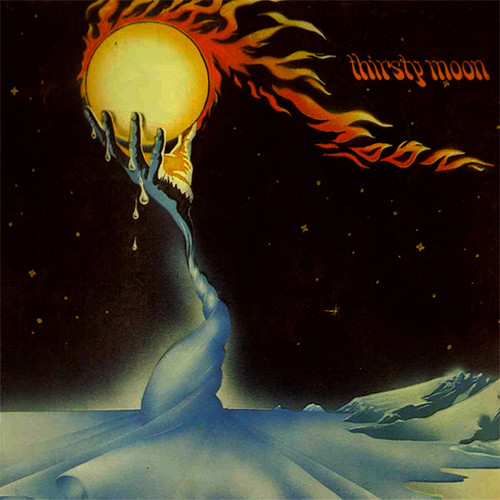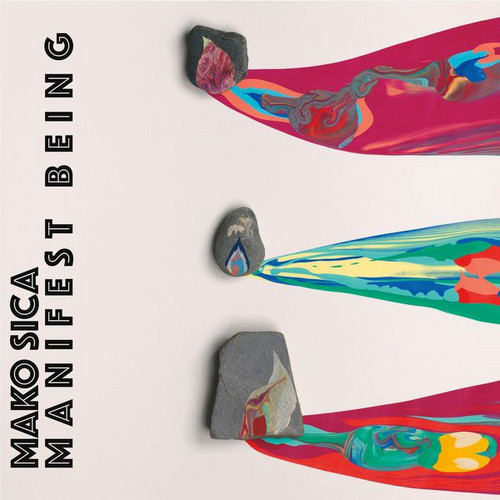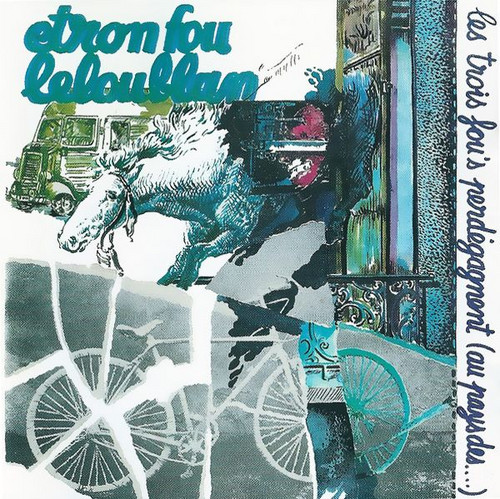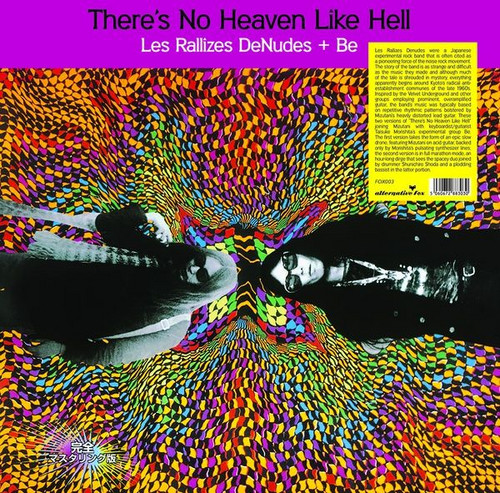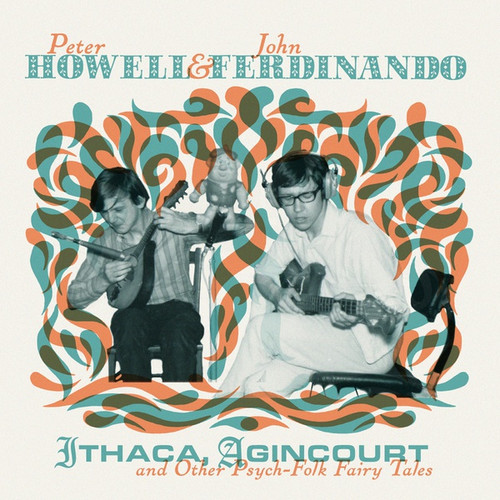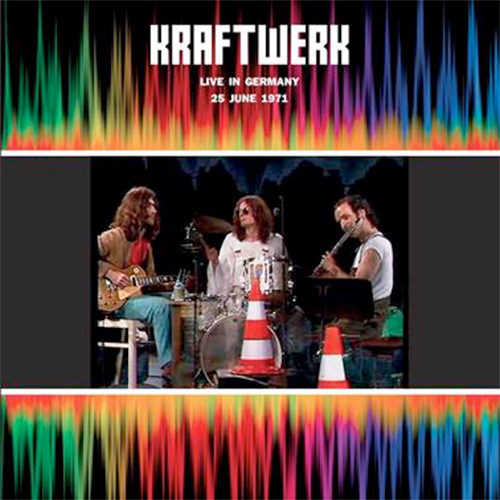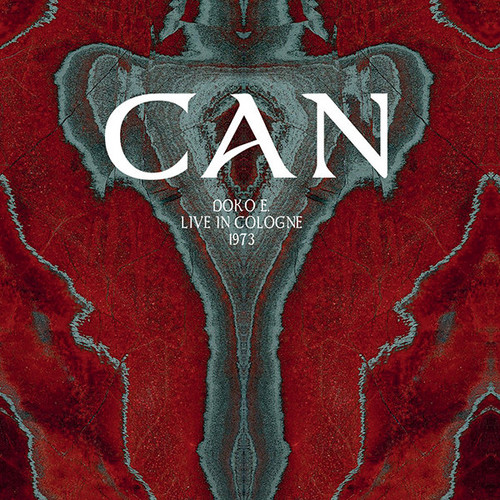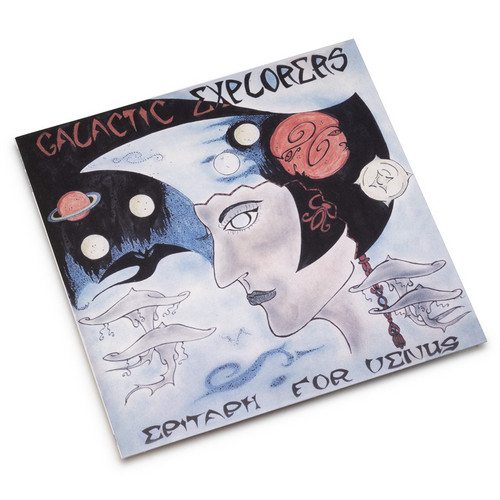Psych /
Top Gear Live In London 1967-1969
These Soft Machine recordings for John Peel's Top Gear programme took place in December 1967 and June 1969 when the band was at the peak of their psychedelic revolution and during their first transition towards an unprecedented form of Psych Rock Jazz. These historical sessions, including a great version of Wyatt's masterpiece Moon in June, show the great potential of the band's early line ups featuring Hugh Hopper - bass, Kevin Ayers - vocals, guitar, bass, Robert Wyatt - vocals, drums and Mike…
In the Land of Grey and Pink Live at the Bbc, 1971
Recorded Live at the BBC in spring 1971, the same year of In the Land of Grey and Pink release, this is the classic Caravan line-up playing music from the same iconic studio album, a true masterpiece in the '70s Rock history. A quintessential combination between Richard Sinclair's beautiful and timeless melodies and David Sinclair's fuzz-organ improvisations. A full immersion in deep Canterbury sound featuring, among others, a fifteen minutes epic version of Nine Feet Underground.
Chelsea Girl
2019 repress. Her debut originally released in 1967 (mere months after the groundbreaking The Velvet Underground & Nico album). A masterpiece of dark orchestral folk-pop featuring playing and songwriting help from the VU's Lou Reed, John Cale and Sterling Morrison (as well as the then unknown Jackson Browne who was dating Nico at the time). Features the definitive version of Browne's 'These Days,' as well as classics like the title track and Tim Hardin's 'Eulogy For Lenny Bruce."Although Chelsea…
The Gospel According To Zeus
When one thinks of Motown Records, heavy guitar riffs and psychedelic rock is not the first thing that comes to mind. Perhaps that's why Power of Zeus's 'The Gospel According to Zeus', the debut rock release by Motown subsidiary Rare Earth Records and the Detroit band's first and only full-length album, has achieved mythological status in the years since its release in 1970. Marked by the virtuoso guitar work of Joe Periano, Power of Zeus created an album that merges the high-concept songwriting…
Australian Sun
What about Harry Merry? Harry Den Hartog is a talented singer and songwriter from Rotterdam in the Netherlands where music drew his attention from a young age. At the age of eight he got his first piano lessons and in the '90s he started to compose his own music using several keyboards like Casio wk3500 and Roland E-86. His music is quite pleasant, flashy and a little bit crazy, with his tracks having an absolute mastership of the pop formula. On this 7" single released by Meeuw Muzak, Harry Mer…
Viaje: Musica Electronica Libre
Cult, obscure 1976 proto-electronics masterpiece 'Viaje' is a purely brain frying avant garde flipout from the electroacoustic musicians Eduardo Polonio and Horacio Vaggione (probably most known for his album on Cramps 'Nova Musicha' series). Together, they deploy synths, electric guitars, organs and bass and squash them all up together in sundry sense befouling ways. On the A side, they're tangled into an overpowering threshing machine of spitting electronic mayhem, while the B side moves the p…
Sündenfall II
2019 restock. Sündenfall II from the Kevelaer area at the Lower Rhine played a mixture of folk and jazz. While their predecessors, Sündenfall, exclusively dedicated themselves to jazz, the group included folk after a change in line-up and band name (following the example of Amon Duul II). In 1972, Hubert Schmitz invited the band into his Trepitia film and sound studio in Alpen-Druept for free recordings, as he wanted to test the newly installed equipment after a recent move into the new location…
Whistling Jigs To The Moon
LP version. Includes insert with lyrics, liner notes, and photos. Sommor Records present a reissue of Flibbertigibbet's Whistling Jigs To The Moon, originally released in South Africa in 1978. Whistling Jigs To The Moon is not only a very rare and sought-after album but also a wonderful collection of traditional and original folk tunes with a strong Celtic influence. Featuring Alison O'Donnell and David Williams from psych-folk legends Mellow Candle. In 1974, following the break-up of Mellow Can…
Thirsty Moon
2019 restock. This is Thirsty Moon's first album on the famous German label Brain, originally released in 1972. Included in the in the infamous The Nurse With Wound List, created in 1979, became a common touch point for several generations of experimental and underground. This album truly is a jewel of German progressive rock. The seven band members used elements of jazz as a means of spontaneous expressions and blended them with the aggression and rhythm of rock! Comparisons with Kollektiv and …
Manifest Being
** 250 copies ** "A lot of people flipped out over how amazing Mako Sica's last album, "Ronda" (FTR 409LP, 2018), was. "Ronda" was a 2LP set whereupon the Chicago trio collaborated with legendary local percussionist Hamid Drake. This pairing seemed like a natural to us, but for some reason people have been woefully unaware of Mako Sica despite the fact they've been releasing killer records for a decade, and playing live shows that submerge your brain in a sonic soup that recalls the Sun City Gir…
Reel 19 36
Active from 1974 to 1979, French guitarist Jean-Pierre Grasset released two cult albums under the alias Verto. Grasset blended as many influences as possible, from pop psychedelia to chill electronic experimentations and krautrock dynamics. Thus it is no surprise that he ended up collaborating with the whole Potemkine crew as well as members from Magma (Benoit Widemann and Jean-Pierre Fouquey), giving his songs a very original Zeuhl flavor. Comes on 180 gram vinyl
Odyssée
A relatively obscure band from the underground French progrock scene from the 70's, founded by sound designer Alain Coupel and guitar player Jack Mlynski. Half King Crimson's complexity, half Gong's fantasy, the quartet was best known for writing songs that were deeply occult and strange. Vocals are sparse, enigmatic and ghostly. The album’s real centerpiece is “Artcane I”, a
lengthy track encapsulating everything great about Artcane: patient
crescendos of cosmic atmospherics, hypnotic keybo…
Les Trois Fou's Perdégagnent (Au Pays Des...)
Second album by Etron Fou Leloublan, the mythic avant-rock / rock-in-opposition incredible trio, that happily destroys all rock structures and performs a delirious music, full of humour and rhythm. Etron Fou Leloublan had definitely moved up a notch with this release and things would actually get even better with the next release! Still, this album, originally published in 1979 is quite a juicy steak that will take quite some time to devour with the end results exceeding beyong the initial anti…
Gazuline - Le Plein De Gazul Pour Pas Cher
This stunning compilation includes titles by Etron Fou Leloublan, Les Nouvelles Lectures Cosmopolites, Toupidel Limonade, Sotos, Arthur et Les Robots, Spirits Burning, Pataphonie, Finnegans Wake, Palo Alto, Present, David Vincent, Eskalation and Triple Zero.Rock In Opposition, Progressive rock, chamber music, new musics or avant-garde... There's something for every taste and every age!
There's No Heaven Like Hell
One of the strangest and most enigmatic groups in the history of rock n' roll, Les Rallizes Denudes, also known as Hadaka no Rallizes or Hadaka no Rarizu, were a Japanese experimental rock band that is often cited as a pioneering force of the noise rock movement. The story of the band is as strange and difficult as the music they made and although much of the tale is shrouded in mystery, everything apparently begins around Kyoto's radical anti-establishment communes of the late 1960s, where andr…
Ithaca, Agincourt And Other Psych-Folk Fairy Tales
If one is aware of high prices on online music sites or is a part of any worldwide record collectors' circles, albums from groups such as Ithaca and Agincourt might sound familiar. Producers, composers, singers and multi-instrumentalists Peter Howell and John Ferdinando are two English musicians who started their partnership in the mid-1960s. From 1968, with the release of their soundtrack for the play Alice Through The Looking Glass, until the release of a project called Friends in 1974, they p…
Live In Germany 25 June 1971
1975 was a turning point year for Kraftwerk and this live set from Koeln is a fine document of the band's live shows of the period. The album opens with an epic sidelong version of the previous year's big hit "Autobahn", their first lucky experiment with highly repetitive electronic structure, they would become known for later, and it also includes a fine rendition of "Ruckzuck", a classic tune from their 1970 first album. This is highly futuristic German Musik of the Seventies at its best.
Live At The BBC 1972
This 1972 BBC Live recording is the perfect proof of what a band like Matching Mole could do in concert during their too short existence. The quartet playing was way more free and adventurous than in studio and the tunes were often stretched out and built to dense instrumental climaxes. Dave MacRae - electric piano, Phil Miller - guitar, Bill MacCormick - bass, Robert Wyatt - drums, vocals. A great live session from a key group in the Canterbury rock scene and an essential companion to the band'…
Doko E. Live In Cologne 1973
Recorded in 1973 at Inner Space Studios during the "Future Days" sessions , this album contains the full lenght performance of "Doko E" a track which appeared on the “Limited Edition” LP. But where the original release gave us only a two and a half minute version, here you can get the whole 40 minutes. A solid and energetic session from the Can classic line up featuring Holger Czukay, Michael Karoli, Irmin Schmidt, Jaki Liebezeit and "Damo" Suzuki. Highly recommended for both Can completists an…
Epitaph For Venus
From the moment it emerged during the mid 90’s, mystery has swirled around Galactic Explorers’ sole LP - Epitaph for Venus. Released by the Psi-Fi imprint as a long lost Krautrock gem from the mythical Pyramid label’s archives - said to be have been recorded by Toby Robinson in Cologne circa 1972/73, it has been loved by many, while others have cried hoax. Some ventured further, implicating none other than Genesis P. Orridge as the creator. The truth isn’t publicly known, but the foggy origins p…
